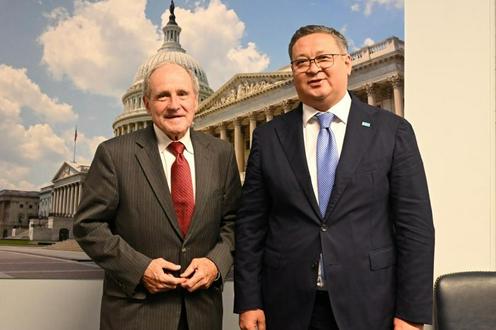U.S. lawmakers are considering lifting the Jackson–Vanik amendment as it applies to Kazakhstan. The issue was discussed during a meeting between Kazakh Foreign Minister Murat Nurtleu and U.S. Congressman Robert Aderholt, as well as Representative Carol Miller, a member of the House Ways and Means Subcommittee on Trade, according to Kazakhstan’s Ministry of Foreign Affairs.
“During the negotiations, Nurtleu received clear assurances of U.S. lawmakers’ firm intention to support the repeal of the Jackson–Vanik amendment with respect to Kazakhstan,” the ministry stated.
Nurtleu is currently on an official visit to the United States. As part of his trip, he also met with U.S. Secretary of State Marco Rubio and Senate Foreign Relations Committee Chairman James Risch. The parties discussed strengthening economic ties and advancing political dialogue “in line with the key priorities of the U.S. administration.”
The Jackson–Vanik amendment was introduced in 1974 by Congressmen Henry Jackson and Charles Vanik as part of the U.S. Trade Act of 1974. It imposed trade and financial restrictions on countries that limited emigration rights and violated other human rights.
Specifically, the amendment allowed for the imposition of discriminatory tariffs and duties on imports from non-market economies and prohibited the extension of government loans and credit guarantees to those countries.
After the dissolution of the Soviet Union, the amendment’s provisions automatically extended to all CIS countries. Since then, the United States has formally lifted the restrictions for Russia, Ukraine, Kyrgyzstan, Armenia, Georgia, Latvia, Lithuania, Estonia, China, and several others.










